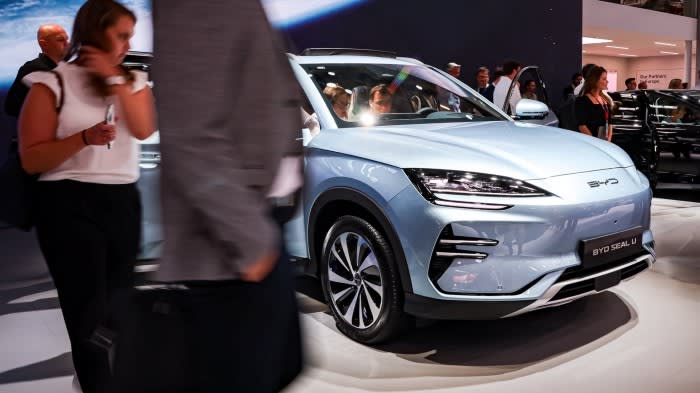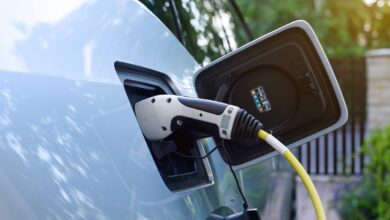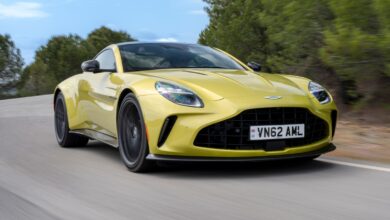The overlooked issue with new Chinese electric cars

Recently, the National Road Safety Authority launched a new campaign against speeding, and the rapid effects on road accident outcomes. But authorities, not only in Israel, are also lagging behind in the technological race, especially in the battle of power and accelerations generated by Chinese electric cars.
An electric car will always accelerate faster than a gasoline car, thanks to its abundance of power and torque from the moment of starting the journey, and the fact that the acceleration rate is not hindered by the need to shift gears. But the competition that Tesla has created with its performance and plaid versions has aroused Chinese manufacturers who see Elon Musk’s company as a model to emulate, in a competition that has not yet been seen on the 0 to 100 km/h acceleration data.
What used to be a parameter for car enthusiasts has become a sought-after “accessory” in electric cars. Tesla has shown us that even the basic Model 3 accelerates from 0 to 100 km/h in 6 seconds, a better result than any compact sports car we knew, and certainly better than family gasoline cars boasting a time of around 10 seconds. Its sports versions have already lowered the bar to less than 4 seconds, much less in the case of the Plaid Model S, with 2.1 seconds.
It’s not that there weren’t cars with such accelerations before. Generally, they had symbols of Ferrari and Porsche, they were expensive and inaccessible, sold in small numbers to drivers who usually gained experience in less powerful cars, underwent advanced driving courses and had many years after receiving their license.
You can see it on the table attached at the end of the article: until about three years ago, you had to pay about NIS 500,000 for a car that accelerates to 100 km/h in less than 4 seconds, like the Audi RS3 or Mercedes AMG A45. Tesla lowered the threshold to less than NIS 300,000 with the 3 Performance, Zeekr to NIS 205,000 with the X Crypton, and now it has also introduced the MG4 X-Power for NIS 174,000.
The lower price makes the performance of cars much more accessible. In the Zeekr X, out of 828 cars that hit the road, nearly a third (269) were the strong Crypton model. In Tesla Model 3, the Performance variant accounts for about 12.5% of sales in the country (1,517 units so far), but it is more expensive and only recently returned to the market for the first time after almost a year.
While someone who obtains a license for a motorcycle cannot directly purchase a true sports bike, with an output of more than 47 kW – which used to be the 500 cc category and above – if they are not at least 18 years old without a lower-grade license for a year, in cars there are no such restrictions. And when the government does not intervene, the dilemma comes to the private market.
Importers of MG, Lubinsky, decided that anyone who requests a test drive of the powerful MG4 will start it as a passenger alongside the company’s driving instructor, who will examine the customer’s profile while presenting the car and decide whether to allow them to drive, in order to filter out those who come just to push the limits.
Anyone who decides to purchase the vehicle will receive an advanced driving course at the Motorcity, near Beersheba, for NIS 2,000, to familiarize themselves with the car. The course will include a theoretical part, explaining the behavior of a car with such performance, choosing the correct driving line, forward driving observation and planning, and a practical part: proper sitting and correct operation of the steering wheel, practicing control of the vehicle’s acceleration peak, correct throttle and braking modulation, timing of acceleration and braking, emergency braking practice, and obstacle avoidance.
“Both the Kia Picanto and the Ferrari SF90 can be involved in fatal road accidents, it is not the car that causes the accident, but the driver,” says advanced driving instructor, Leon Taubes, who will conduct the training sessions together with his team at Leon Drive Company. “In a gasoline car, accelerations are different than in an electric one. Even when the driver presses the gas pedal, it takes a second until the turbo kicks in, until the gear changes. And then you have time to prepare, even at the level of adjusting your posture on the seat. In electric cars, powerful electric engines already start accelerating before the gas pedal reaches the end of the course, the moment the gas pedal is pressed, the acceleration already jumps. Long before the driver is ready for it.”
And then, says Taubes, an electric car driver arrives at the square much faster than planned. “In every modern car there isn’t really a sense of speed, and in electric cars even more so. And for acceleration there is a greater effect because it is heavier by several hundred kilograms than a gasoline car. And the tires are mostly the same tires, it is impossible to create much better road grip for electric cars, at a level that will stick their performance. So someone who has been driving an average gasoline car with 130-150 horsepower until today suddenly encounters accelerations of a magnitude that no gasoline car has. And an average driver does not sit properly in the car, does not look correctly at the traffic and does not handle the steering wheel correctly.”
Part of the difficulty arises from the atmosphere surrounding electric cars. “A customer has already seen videos of what other drivers do with these cars, and wants it too. They are much more accessible today because of the price, and the available funding, which brings in an audience that has never experienced anything similar. And after he receives the car, they quickly get used to accelerations, and then the driving pace only increases, without always understanding the implications.”
Even in Europe, there is still no attention from the authorities to the high performance of some electric cars, but there is mostly a motor culture based tradition of driving in high-performance cars, training, and available tracks. In the country, Tesla models are already involved in more accidents than average today, and their performance levels are becoming more and more common.
During a time when the Transportation Ministry did not lift a finger to cancel transportation education in high schools due to budget cuts, emptied of professionals, it will not initiate any initiative to cope with the new situation. The initiative of the MG importer is a good start, it is fitting that other importers will join it.
Performance Downgrades
Model | Power | 0-100 | Price
MG X-Power | 435 | 3.9 | NIS 174,000
Zeekr X Krypton | 428 | 3.8 | NIS 205,000
Volvo EX30 Performance | 428 | 3.6 | NIS 234,000
BYD Silexelence | 530 | 3.8 | NIS 234,000
Smart 1 Brabus | 428 | 3.9 | NIS 240,000
Smart 3 Brabus | 428 | 3.7 | NIS 250,000
Tesla 3 Performance | 460 | 3.1 | NIS 273,000
Audi RS3 | about 400 | 3.8 | NIS 490,000
Tesla Model S | 1,020 | 2.1 | NIS 623,000
Mercedes A45 Class | 421 | 3.9 | NIS 680,000
Alpine A110R | 301 | 3.9 | NIS 720,000
Chevrolet Corvette Stingray | 490 hp | 2.9 | NIS 779,000
Porsche Taycan Turbo | 625 | 3.2 | NIS 1,230,000
Porsche 911 Carrera 4S | 450 | 3.6 | NIS 1,120,000
Aston Martin Vantage | 510 | 3.6 | NIS 1,500,000
Ferrari F8 Tributo | 720 hp | NIS 2,100,000



